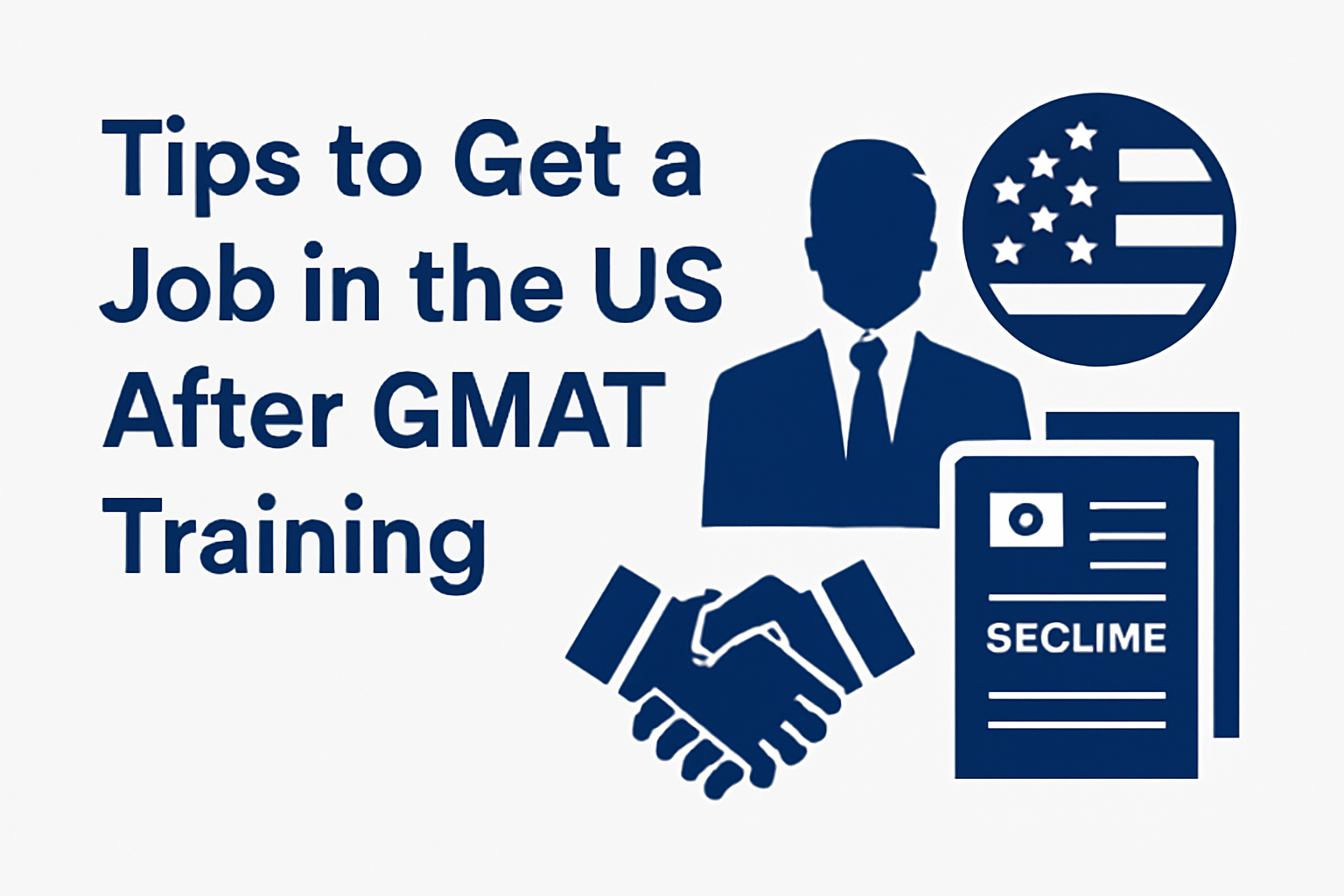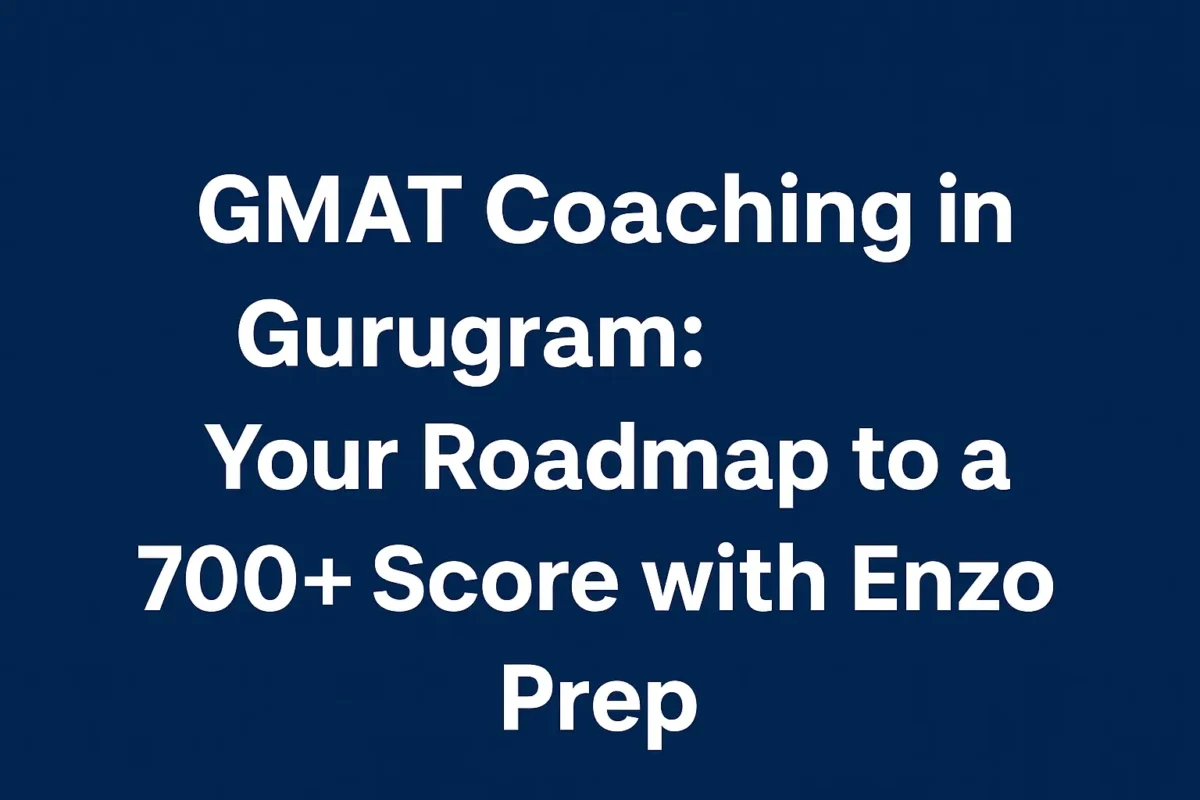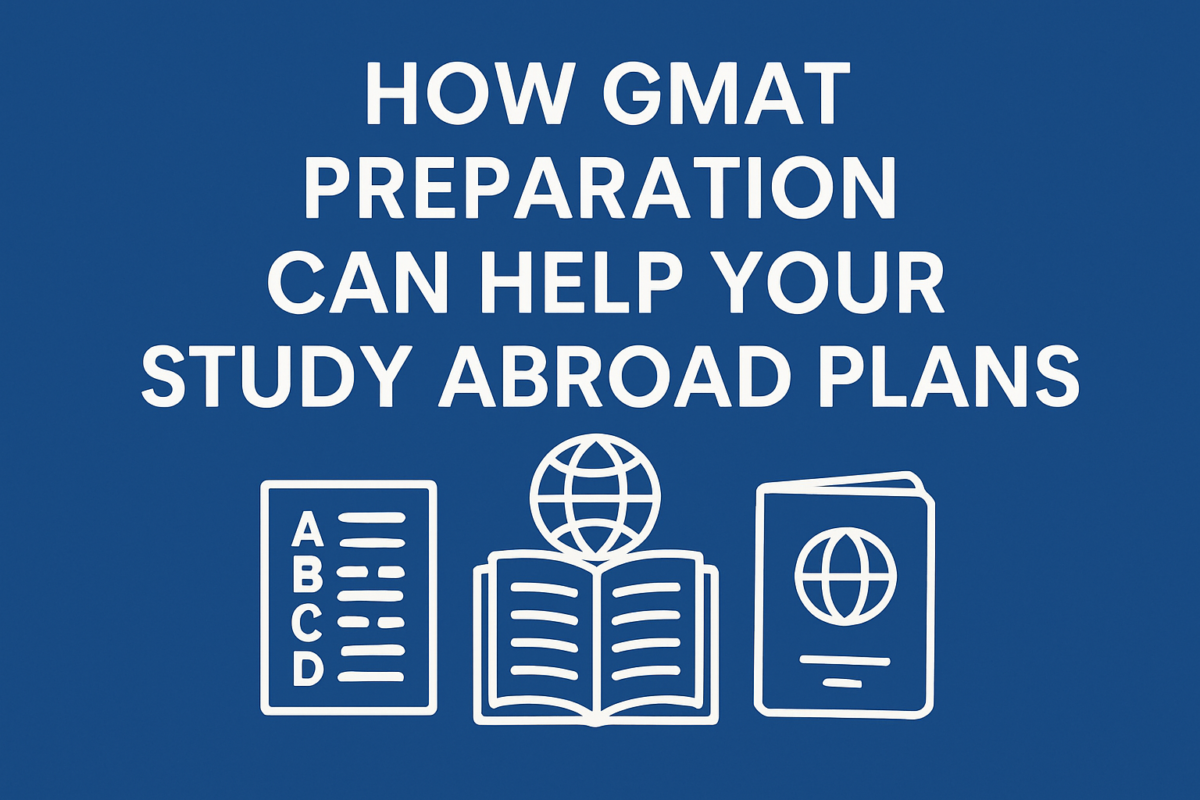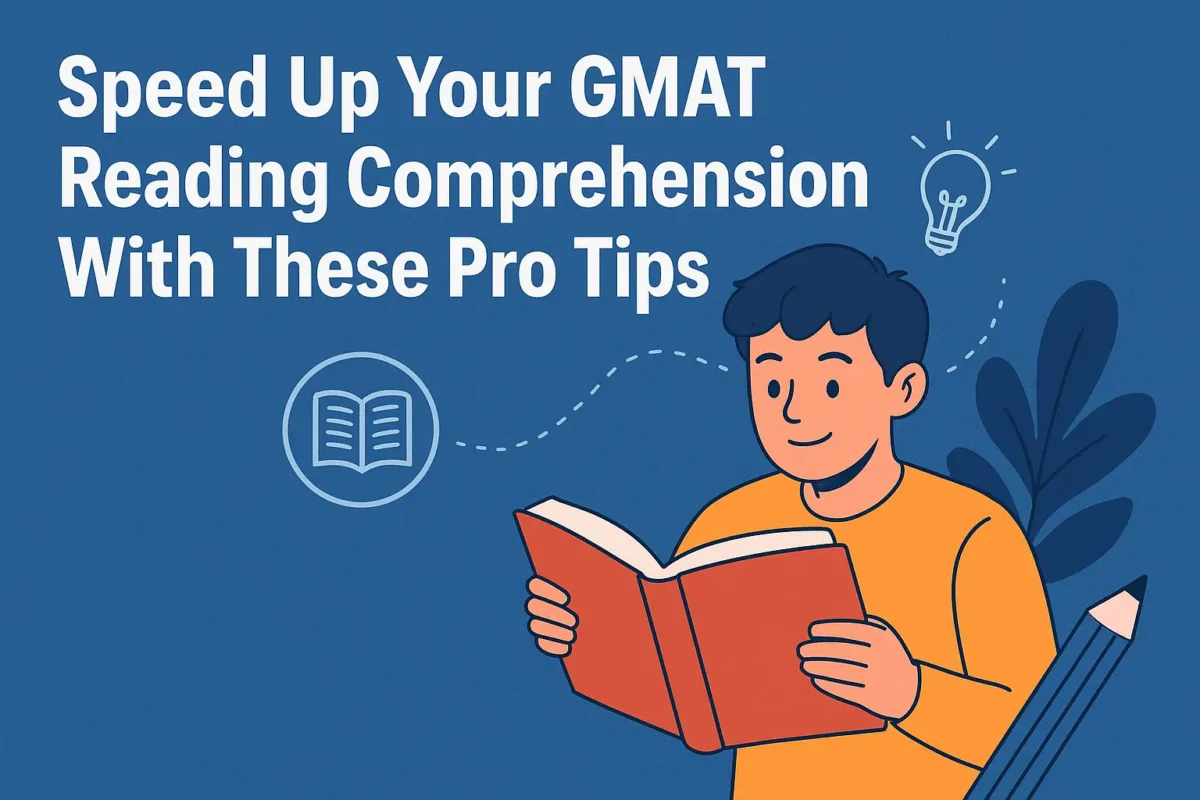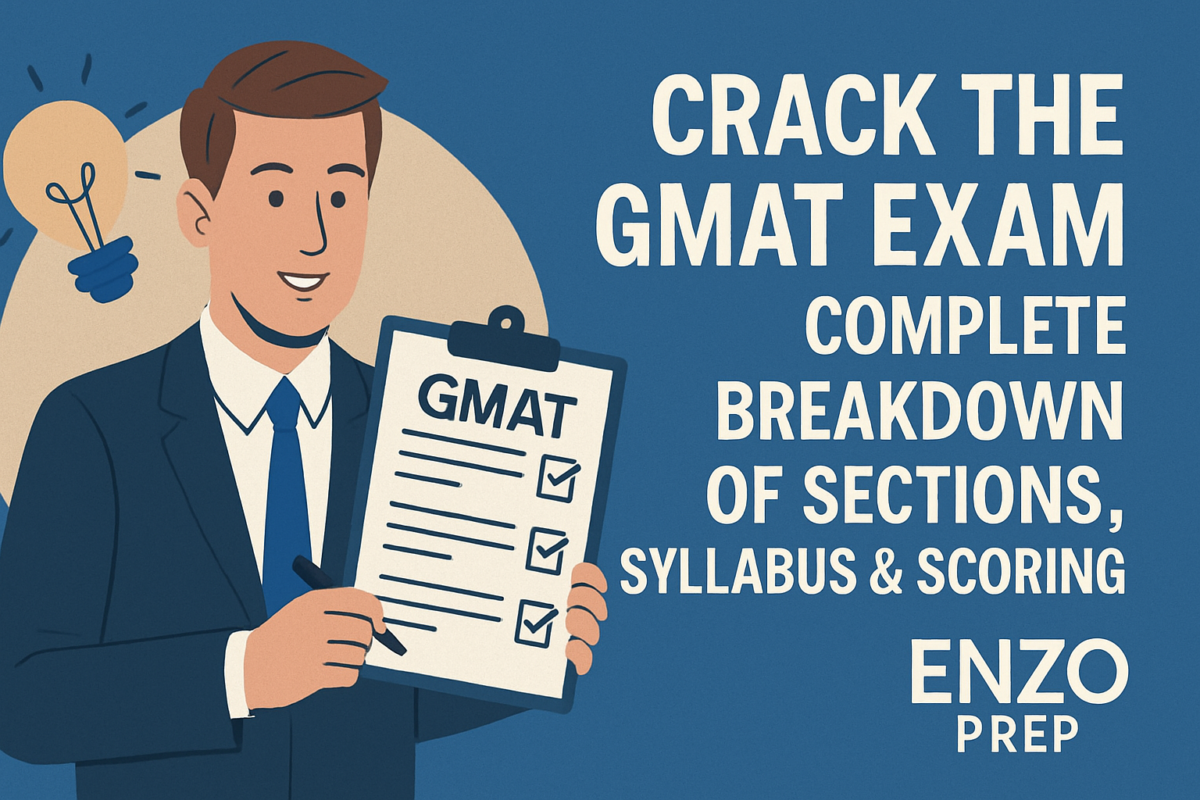When you plan to get GMAT training, then it is likely that you already have in mind an international MBA course and, perhaps, an international career, particularly in America. However, GMAT preparation is not only about winning the admission to B-school, but also it is a stepping stone to your dream job internationally. In this blog, we are going to take you through some of the tips that you will require to secure a job in the US once you finish your GMAT training.
Regardless of whether you are a student, or a working professional, a proper plan in place along with the finest GMAT training can lead the path to a new and exciting career opportunity in a foreign country.
Why a GMAT training would be the initial step towards a US career
Having a good GMAT score plays a significant role in increasing the probability of securing a position in the US prestigious colleges. However, more than that, it demonstrates to potential future employers that you have quantitative, verbal and analytical abilities- these particular skills are vital to just about any career. It is particularly worth it to invest in the most exemplary GMAT training in order to excel as a working professional. Not only does it help you hone your academic profile, it also teaches discipline, time management and commitment-some of the most desired attributes by American employers.
1. The Best GMAT Program That Supports a Career
Ensure also that your GMAT training institute not only trains you to take the test, but also provides some guidance after you take the test. Seek out schools, which:
- Assist you to develop your MBA application profile
- Accommodate visa/immigration assistance
- Provide mock interviewing and career services
- Link you up to alumni networks in the US
In case you are a working professional, select GMAT training that provides a flexible schedule and personalized guidance towards the respective professional. These will enable you to juggle work, preparing GMAT and strategizing career move.
2. Shortlist B-Schools with Strong Placement Records in the US
Now that you have begun GMAT prep already, begin to do some research on US universities who do not just recognise the GMAT score but also have powerful recruitment alliances with American corporations. International job placing: Some of the best B-schools:
- Wharton (University of Pennsylvania)
- Stanford GSB
- MIT Sloan
- Columbia Business School
- Duke Fuqua
The institutions hold frequent career fairs and corporate networking events to which students have direct access to recruiters in some of the best US based companies.
3. Make use of Optional Practical Training (OPT)
The concern that international students have most often is: Is it possible to work in the US after MBA?
Yes it can-with the help of the OPT (Optional Practical Training) program. Once you do MBA in the US, you can work 12 months through OPT. In the event that your MBA should be STEM-designated, then you could enjoy an extra 24-month extension. It is your time to get hired on full time basis in the US, and it is imperative that:
- Begin searching for a job as early as when you are taking an MBA
- Go to career fairs and workshops put on by employers
- Develop networks with professors, alumni and industry mentors
4. Write US Resume Format and LinkedIn Profile
Before getting to the job applications, ensure that your resume and LinkedIn fit US expectations:
- Make it short (max 1 page)
- Do not focus on responsibilities but on accomplishments
- Put a good GMAT score in, where you have it
- Tailor your resume to job position
Also, use the feature of LinkedIn such as Open to Work or follow companies in which you want to work. A good portion of GMAT-trained professionals is hired due to networking, referral, or LinkedIn approaches of recruiters.
5. Use Campus Resources Take Advantage
It is important that once you are in the US, use campus career services fully. They normally provide:
- Individual career coaching
- Asking friends to look over a resume and cover letter
- Mock interviews with feedback
- Alumni networking events
Your GMAT preparation made you join one of the best B-schools- now use the platform to network yourself with the recruiter and industry experts. A lot of organizations recruit straight out college placements, mainly talking of consulting, finance, and technology.
6. Develop a Powerful GMAT Connected Narrative
During the job interviews, you can expect to be asked how your GMAT experience has enriched you as a applicant:
- Has our prep enhanced your problem solving ability?
- Did it make you learn how to manage time?
- Are you taking GMAT and a full-time job?
Relate your GMAT with real life instances. This will not only impress the employers, but also point out the worth of your gmat training.
Last Words: Post-GMAT to International Household career
There is no doubt that I can get a job in the US upon completing GMAT training with the right preparation, the right school and the right strategy.
Following these steps to selecting an optimal GMAT training, developing a specific application strategy, utilizing campus resources, and making valuable connections means that you are halfway to making your dream of studying abroad come true and translating it into a reality in the professional field.
Therefore, GMAT training of working professionals starts today, and it can be the first book in your international career life!
FAQs
Q1. Can GMAT help me get a job in the US directly?
- No, GMAT is not a job qualification test. However, it is essential for admission into US B-schools, which in turn can lead to job opportunities.
Q2. Should I mention my GMAT score in job interviews?
- If your score is impressive (700+), definitely mention it. It reflects strong analytical and verbal skills.
Q3. What type of job can I expect after GMAT and MBA in the US?
- Roles in consulting, finance, tech, product management, and analytics are popular among international MBA graduates.
Q4. Is it necessary to do MBA after GMAT to work in the US?
- Yes. GMAT is primarily used for MBA admissions, and most US job opportunities for international candidates come after completing a US-based MBA program.

